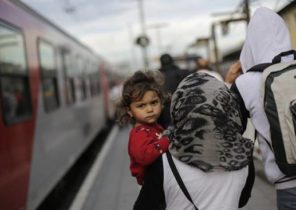Berlin — Germany is often called a positive example of how to cope with the pandemic Covid-19. We have successfully prevented the overloading of our health care system. The curve of the number of cases of infection is clearly smoothed. And the proportion of severe and deaths in Germany are lower than in many other countries. But that doesn’t make us too cocky; we keep modestly.
I see three reasons for that — so far — allow Germany to pass through the crisis relatively quiet. Firstly, the German health care system was in good shape before the crisis; everyone in the country have full access to health services. This achievement is not only the current government; it is a merit system, built over long time by many governments. Thanks to the wonderful network of therapists who took treatment mild cases Covid-19, the hospital had the opportunity to focus on more severe cases of this disease.
Secondly, Germany was not the first country that has been hit by a virus, so we had time to prepare. Although we is always a relatively large number of available hospital beds (especially intensive care units), we took seriously the threat Covid-19. Accordingly, the number of places in intensive care units had increased from 12 thousand bed capacity to 40 thousand.
Third, in Germany there are many laboratories that can conduct tests for the virus, and there are many outstanding experts on the subject that helps to explain why it was developed the first quick test Covid-19. With a population of 83 million people, we have the opportunity to spend up to one million diagnostic tests per day, and will soon be able to spend about five million of the antibody tests monthly. Mass testing like a flashlight in the dark: without it, you can see only the gray shadows; and with it you can clearly and immediately see the details. But if it comes on the outbreak, you can’t control what you can’t see.
Yes, of course, being the Federal Minister of health of Germany, I understand that we see only the immediate picture. No one can predict with certainty how the pandemic will develop in a few weeks or months. We have not introduced strict national quarantine, but asked citizens to voluntarily stay at home. Like many other countries, for two months we lived under the strict restrictions of public and private life. Judging from what we know, such measures are necessary and effective.
However, we cannot ignore the effects of quarantine and this is why we are gradually trying to get back to normal. The problem is that the gradual removal of protective measures is potentially no less difficult issue than their introduction. We are working in a situation of profound uncertainty, but it can be sure the threat of a second wave of the epidemic. And so we remain vigilant.
Only time will tell whether our decisions are correct, so at the moment I’ll be careful with the conclusions from the current crisis. However, some conclusions now seem obvious.
First, it is critical that the government informed the society not only of what they know but what they don’t know. This is the only way to build the trust needed to combat the lethal virus in a democratic society. No democracy can get people to change their behavior — at least, not faced with high costs. Transparency and reliable information are much more effective than coercion, allow you to organize the coordinated, collective actions.
In Germany we have made progress in slowing the spread of the virus, because the vast majority of citizens want to cooperate out of a sense of responsibility for themselves and others. However, to maintain these successes, the government has a duty to Supplement timely information about the virus public debate and a roadmap showing the path to recovery and restoration.
Second, in addition to informing society, the government must show that they are counting on citizens for their understanding of the situation and what it requires. German citizens informed, and therefore know that a return to normal is impossible without a vaccine. In our new routine of daily life, we are guided by this formula: to strive for the greatest possible normality at the maximum necessary protection measures.
While our decisions about where and how to weaken the restrictions comply with clear and reasonable criteria, we are confident that German citizens will support them. Our decisions should be based on facts, but their goal should be to reduce the risk of infection. We know that social distancing is the most effective measure of protection. When people are kept at a minimum distance of 1.5 meters from each other, the risk of infection is significantly reduced. The risk is reduced even more, if we can guarantee compliance with basic rules of hygiene. Other residual risks can be overcome in various ways, depending on the situation.
Third, the pandemic showed why interconnected world demands in crisis management at the global level. Unfortunately, in recent years, to engage in multilateral cooperation has become more difficult, even between close allies. Today we see how much we need each other, so the current crisis should be an awakening call. No single country can’t handle a pandemic alone. We need international coordination, and if the institutions that exist just for this purpose, are not good, then we should work together on improving them.
Fourth, we Europeans should rethink our approaches to globalization and realize that it is critical to produce commodities (e.g., medical materials and equipment) within the EU. We need to diversify the industrial chain, to avoid complete dependence on any one country or region. However, rethinking globalization does not mean the reduction of international cooperation. On the contrary, the joint efforts of the EU countries are already encouraging progress on the road to discovery of the vaccine. Once that happens, it would be very prudent to ensure that it was made in Europe, although it will be available around the world.
Like most crises, the current crisis opens new opportunities. In many areas, he made us to be the best quality: a new sense of community, increased willingness to help others, the tide of flexibility and creativity. Can be no doubt that the medium-term consequences of the pandemic will be serious. But in spite of all the difficulties and uncertainties that lie ahead, I remain optimistic. In Germany and in other countries we see what our liberal democracy and the citizens.
Jens spin — Federal Minister of health Germany







